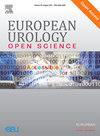评估患者和临床医生对延长前列腺癌患者无进展生存期的临床意义的看法
IF 3.2
3区 医学
Q1 UROLOGY & NEPHROLOGY
引用次数: 0
摘要
背景和目的人们普遍认为,无法治愈的转移性癌症的治疗价值取决于其改善总生存期(OS)、生活质量(QoL)或两者的能力。无进展生存期(PFS)经常被用作主要终点,因为在准确评估OS和QoL方面存在挑战。当对 OS/QoL 的益处存在不确定性时,临床医生和患者对延长 PFS 的认知价值可能会有所不同。我们的研究旨在衡量患者和临床医生对什么是有临床意义的 PFS 益处的看法。参与者包括晚期前列腺癌(PC)患者和治疗 PC 患者的肿瘤内科临床医生。调查问卷提出了一个关于转移性阉割抵抗PC(mCRPC)的假设情景。参与者被问及他们是否愿意接受或处方在 OS 结果不确定的情况下仍能带来 PFS 益处的治疗。参与者在考虑到不同毒性水平的情况下,指定了在情景中列出的 18 个月估计疗程之外的 PFS 最小延长时间(ePFSmin)。主要发现和局限性在 2024 年 4 月至 5 月期间,共收到 54 份患者回复和 27 份临床医生回复。约 50/54 名患者参与者(92.6%)和 22/27 名临床医生参与者(81.5%)表示愿意接受与较长的 PFS 相关的前瞻性治疗,但 OS 的获益尚不确定。对于无毒性或轻度毒性的治疗,患者参与者接受治疗的中位 ePFSmin 为 12 个月,临床医生参与者为 3-6 个月。对于有严重毒性的治疗,40.7%的患者和 51.9% 的临床医生不接受治疗;患者接受治疗的 ePFSmin 为 3-6 个月,临床医生接受治疗的 ePFSmin 为 12 个月。患者需要更长的PFS延长期来证明治疗的合理性,但与临床医生相比,他们更能接受副作用,也更重视前列腺特异性抗原或放射学反应。患者摘要我们调查了患者和医生对晚期前列腺癌假想治疗的看法,这种假想治疗可以延缓疾病进展,但不能确定是否能延长预期寿命。患者和医生都对这种治疗方法持开放态度,但患者比医生更期望延缓疾病进展的时间,然后才愿意接受这种假想的治疗方法。如果这种疗法会产生严重的副作用,许多病人和医生也不会考虑这种疗法。本文章由计算机程序翻译,如有差异,请以英文原文为准。
Assessment of Patient and Clinician Perspectives on Clinically Meaningful Extension of Progression-free Survival in Prostate Cancer
Background and objective
It is widely accepted that the value of treatments for incurable metastatic cancer depends on their ability to improve overall survival (OS), quality of life (QoL), or both. Progression-free survival (PFS) is frequently used as a primary endpoint because of challenges in accurately assessing OS and QoL. The perceived value of extending PFS when there is uncertainty regarding the benefit to OS/QoL may vary between clinicians and patients. The aim of our study was to measure patient and clinician perspectives on what defines a clinically meaningful PFS benefit.
Methods
We conducted an observational study using a self-administered questionnaire. Participants included patients with advanced prostate cancer (PC) and medical oncology clinicians treating patients with PC. The questionnaire presented a hypothetical scenario of metastatic castrate-resistant PC (mCRPC). Participants were asked about their willingness to undergo or prescribe treatment offering PFS benefits despite uncertain OS outcomes. Participants specified the minimum extension of PFS (ePFSmin) beyond the estimated 18-mo duration outlined in the scenario while considering varying toxicity levels.
Key findings and limitations
Between April and May 2024, 54 patient responses and 27 clinician responses were received. Some 50/54 patient participants (92.6%) and 22/27 clinician participants (81.5%) expressed willingness to accept a prospective treatment associated with longer PFS but uncertain OS benefit. For treatment with no or mild toxicity, the median ePFSmin for treatment acceptance was >12 mo for patient participants and 3–6 mo for clinician participants. For treatment with severe toxicity, 40.7% of patients and 51.9% of clinicians would not accept treatment; the ePFSmin for treatment acceptance was 3–6 mo for patient participants and >12 mo for clinician participants.
Conclusions and clinical implications
Most patients and clinicians are open to mCRPC treatment with evidence of PFS benefits despite OS uncertainty. Patients needed longer PFS extension to justify treatment but were more accepting of side effects and placed greater importance on a prostate-specific antigen or radiological response than clinicians. The relationship between ePFSmin and treatment acceptance according to toxicity levels for patients was unclear, limited by the nature of the self-administered questionnaires.
Patient summary
We surveyed patients and doctors about their views on an imaginary treatment for advanced prostate cancer that could delay disease progression but with no certainty about whether it would extend life expectancy. Both patients and doctors were open to this treatment, but patients expected a longer delay in disease progression than doctors before being willing to accept this imaginary treatment. Many patients and doctors would also not consider the treatment if it caused severe side effects.
求助全文
通过发布文献求助,成功后即可免费获取论文全文。
去求助
来源期刊

European Urology Open Science
UROLOGY & NEPHROLOGY-
CiteScore
3.40
自引率
4.00%
发文量
1183
审稿时长
49 days
 求助内容:
求助内容: 应助结果提醒方式:
应助结果提醒方式:


